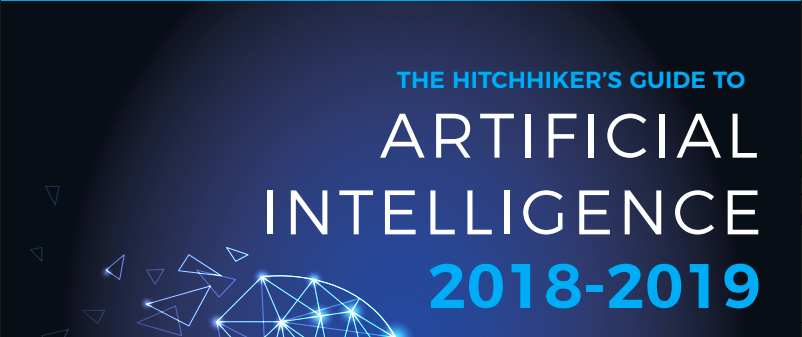Give this a thought: Could the 2008-10 recession in the US been prevented if they could forecast the stock market, predict risks or detect frauds using machine learning and artificial intelligence? The answer lies in the ability of machines to perform diverse, intelligent tasks for us in the form of machine learning and artificial intelligence.
But how do machine learning and artificial intelligence impact the financial industry? The International Data Corporation (IDC) has predicted AI revenues to surge past $47 billion in 2020 and is poised to become the most important technology in the financial sector in India. Interestingly, Prime Minister Narendra Modi on February 18, stated that with AI, bots, and robots, productivity will increase. He emphasised that AI should be “Made in India” and “Made to Work for India,” thus making a strong case for professionals who want to upskill via machine learning certification.
This is set to give a massive boost to careers in artificial intelligence and machine learning. People trained in different branches of science, mathematics or just a degree in technical engineering, can take up a machine learning course to gain a valuable machine learning certification.
The financial industry in India or the Banking, Financial Services and Insurance (BFSI) sector in India is a fast-evolving one. How then, do banks and associated organisations save time, costs and yet add value to their operations for smooth functioning? In India, Artificial Intelligence (AI) has begun to play a major role in solving some of the most vital problems faced by both companies as well as customers. Not just banks, but nearly every company whether public or private in BFSI has started using AI.
Let’s explore how machine learning and artificial intelligence will impact the financial industry in 2018.
Advisory: Robo-advisory at fingertips
Advisory is a critical component of the BFSI sector. A key trend in 2018 will be the rise of robo-advisory by wealth advisers. Once limited to the affluent, AI in the form of robo-advisers will now reach the masses. 5nance.com, a finance management firm already uses a robo-advisory platform. These digital platforms will now act as personalised financial advisers. They come with a range of benefits: continuous market monitoring and 24/7 access. Professionals with a machine learning certification can easily work towards developing such tech. Today, a good, standardised training will combine a machine learning course and an artificial intelligence course and include robotics as an integral part of its curriculum.
Risk Management and Fraud Detection: AI saving millions in costs
Globally, AI has now become synonymous with automated fraud detection. Abnormalities in patterns can now be easily determined and organisations can smartly undertake fraud prediction. AI and machine learning can improve real-time approval accuracy and overall improve general regulatory compliance. Financial organisations can then be more efficient and accurate in their processes, besides saving immense cost to financial institutions. Hiring professionals with either a machine learning certification or artificial intelligence course will be in great demand, particularly in risk management.
Trading: Sophisticated, high-tech trading that rules the world’s markets
With India’s surging economy, technology in data science machine learning makes trading relatively experience for those heavily-vested in the area. Artificial Intelligence has the ability to augment rules, help take key trading decisions and process valuable data. Startups in India such as AccuraCap use a mathematical model that is based on Big Data Analytics and Artificial Intelligence. Many such fund management firms in India have implemented similar trading algorithms, that are based on critical insights from public sources. Coursework in most machine learning certification helps ideate on similar such applications of machine learning and artificial intelligence.
Customer Experience: AI’s story of incredible support and guidance
With finance at the core of the world’s economy, customers will be centric to every activity. Artificial Intelligence and its applications in customer services will only serve to stabilise the BFSI sector. In India, while still a majority of support today is manual, a lot of this will shift to automation. Any investment in artificial intelligence and machine learning will only increase customer base and make it attractive for customers to subscribe to those using AI. From recommendations on savings to the analysis of expenditure – AI will encourage banks to build products that serve basic customer needs with minimum human-to-human interaction. For banks themselves, AI has the ability to provide information about products and services, profit margins, and costs. Thus, a solid support environment based on AI can reduce risks while improving results. A case in point is the use of chatbots used by banks to serve customers more efficiently, combining machine learning with AI. With the help of machine learning certification, it’s also possible to develop models to analyse complex data to return accurate results.
Extensive funding in AI has further strengthened opportunities. In India, government-backed AI funding is already fuelling innovation in existing tech firms. Private firms are investing in smaller startups and academic communities are thriving on diverse aspects of AI in the financial sector. Interestingly, a report by Accenture has forecasted that Artificial Intelligence could add $957 billion to the Indian economy. This also denotes a growth in AI courses across Indian cities, where thousands of aspirants are already registering for an artificial intelligence course.
Good times for job-seekers
For job seekers, these trends signify immense potential for full-fledged careers, including specialisations. An artificial intelligence course, that is also available to pursue online is going to be in great demand. To make a career in machine learning or artificial intelligence, the previous background does not matter. Anyone can simply sign up for a machine learning course, whether you are from a multidisciplinary background or from the STEAM (science, technology, engineering, arts, and mathematics) sectors. Career growth and opportunity after you learn machine learning are plenty. Majority of jobs in data science machine learning require aspirants to be innovative in an industry that is poised for success.
How is AI Going to affect the Financial Industry in 2024?

Table of contents






